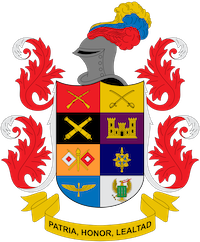The State-sponsored Conspiracy and Terrorism: A brief Historial Review and Ongoing Reflections
Abstract
Throughout history, peoples and states have been associated with the incidence range considered by notions of thought associated with the conspiracy, which undoubtedly obeys to the changing environment of the political role. In parallel, and as an antithesis to any democratic principie, it is stressed the concept of state terrorism, which infuses a series of violent and criminal repressions to avoid any form of opposition by the use of violence, either surreptitious or openly. the term terrorism was coined more strongly during the so-called Era of Terror at the dawn of the French Revolution; at that historie moment, the leadership in the Gallic country fell on the figure of Maximilien Robespierre, who using his privileged posit ion of power ordered questionable executory proceedings again st members of the nobility, the clergy, the monarchy and other sectors of the population . Based on this historical distinction, some illustrative examples have been taken, in order to address the issue of conspiracy and state te rrorism, and its impact on the distribution of political power in the world, with distinctive examples associated with such terms schemes governing the Third German Reich and the Union of Soviet Socialist Republics (USSR) and other kind of totalitarian state actor s located in different political spectrums throughout the recent history of mankind.
Downloads
References
Barrenetxea Marañón, l. (2005). Reseña de Los científicos de Hitler. Ciencia, guerra y pacto con el diablo de John Cronwell. S. d.
Cáceres, J. (1990). Terrorismo de Estado. Revista ABRA, 10(13-14), 345-356.
Gómez Pérez, M. (2013). España en la Segunda Guerra Mundial. Sevilla: Universidad de Sevilla.
Gunsberg, A. (s. f.). La tiranía en Maquiavelo. Antigüedad y eficiencia del concepto. Recuperado de http://www.academia.edu/6803395/la_tiran%C3%ADa_en_Maquiavelo._Ambig%C3%BCedad_y_efeiciencia_del_concepto
Moradiellos, E. (2006). El gobierno británico y la guerra de España: apaciguamiento y no-intervención. Historia del Presente, (7), 71-86.
Pérez Hernáiz, H. A.(2009). Teorías de la conspiración: entre la magia, el sentido común y la ciencia. Prisma Social, (2), 1-17,
Vieira Posada, E. V. (2005). Evolución de las teorías sobre integración en el contexto de las teorías de relaciones internacionales. Papel Político, (18), 235-290.













